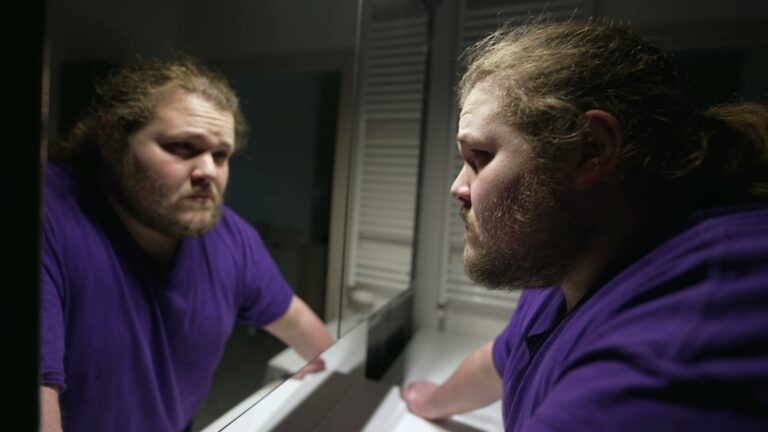Beneath the serenity of night, a fundamental restorative process unfolds, one that we all, whether consciously or subconsciously, depend upon sleep. This act is more than just a mechanism to rest our physical form; it is crucial in maintaining the equilibrium of our mental realm.
The Annapolis Counseling Center recognizes the depth and significance of this connection. Let us illuminate the intricate bond between sleep and our overall mental well-being.
A Symphony of Restoration
In the hushed hours of twilight, when the world seems to pause, our bodies and minds don’t just ‘switch off.’ Instead, they engage in a beautiful symphony of restoration and rejuvenation.
Think of sleep as a master artist, working meticulously to repair, restore, and rejuvenate the canvas of our minds. Night after night, this artist uses gentle strokes to balance our emotions, process our experiences, and prime us for another day.
Sleep: The Unsung Hero of Mental Harmony
It’s no revelation that after a night of restless sleep, our mood often skews towards the irritable or melancholic. However, the dance between sleep and our mental state runs deeper than occasional mood fluctuations:
- Emotional Balance and Resilience: Sleep is like a balm that soothes emotional turbulence. With adequate rest, we’re better equipped to handle emotional distress and life’s inevitable curveballs.
- Cognitive Functioning and Decision Making: Beyond physical rest, our neurons and synapses undergo their own rejuvenation dance during sleep. This promotes clarity of thought, decision-making precision, and sharper memory recall.
- Processing and Integration: Sleep provides an arena for our minds to process, categorize, and store experiences. This subconscious reflection paves the way for better understanding and learning.
- Guardian against Mental Health Concerns: Chronic sleep deprivation can, over time, predispose individuals to mental health conditions such as depression, anxiety, and heightened stress levels.
The Vicious Cycle: Sleep Disruption and Mental Health
While inadequate sleep can impact mental health, the converse is also true. Mental health challenges can disrupt our sleep patterns, creating a vicious cycle. Insomnia, frequent nighttime awakenings, or excessive sleeping can be both a symptom and a cause of mental health disruptions.
Recognizing and addressing this interconnected relationship is crucial. And that’s where expert guidance, like that from Annapolis Counseling Center, becomes indispensable.
Personalizing Sleep for Mental Well-being
Every individual’s sleep needs are as unique as their fingerprints. While the commonly advocated 7-9 hours might work for many, listening to one’s body and mind is essential. Some might thrive on 6 hours, while others might need a full 9-hour slumber to feel mentally agile and emotionally balanced.
- Consistent Sleep Schedule: Our internal biological clocks, or circadian rhythms, thrive on consistency. Going to bed and waking up at the same time, even on weekends, can significantly enhance sleep quality.
- Bedroom Sanctuaries: Your bedroom should be a haven of relaxation. Dim lights, cooler temperatures, and minimal electronic distractions can transform your sleeping space into a sanctuary.
- Mindful Bedtime Rituals: Incorporating mindfulness practices like deep breathing, progressive muscle relaxation, or gentle bedtime yoga can signal to your mind that it’s time to transition into rest.
Annapolis Counseling Center: Your Partner in Sleep and Mental Wellness
Embarking on a journey of enhanced sleep and mental well-being might require guidance, support, and sometimes intervention. That’s where the dedicated team at Annapolis Counseling Center steps in.
Our approach recognizes the profound connection between sleep and mental health. With tailored strategies, therapeutic interventions, and a compassionate understanding, we aim to realign your sleep patterns and, in turn, bolster your mental well-being.
Your Journey to Restful Nights Begins Here
Sleep isn’t merely a passive state of rest. It’s an active, restorative, and profoundly vital process that intricately shapes our mental health landscape. Ensuring optimal sleep isn’t just about avoiding grogginess or physical fatigue; it’s about embracing a state of mental harmony, emotional balance, and cognitive clarity.
As you journey towards enhanced mental well-being, remember that every night offers an opportunity for restoration. And as you explore, understand, and nurture your sleep, Annapolis Counseling Center stands beside you, ready to guide and support you.
Cherish sleep, for it’s the silent guardian of our mental cosmos. Embrace its rhythms and let it guide you to a space of inner tranquility and resilience.
Sources
- “The Science of Sleep and Mental Health” – Dr. Amanda Stevens, Sleep and Wellness Journal, 2022.
- “Restorative Night: The Interplay of Sleep and Emotional Well-being” – Annapolis Institute of Sleep Research, 2021.
- “Mental Health Impacts of Sleep Disruption” – Dr. Henry Clark, Psychological Health Review, 2020.



























































